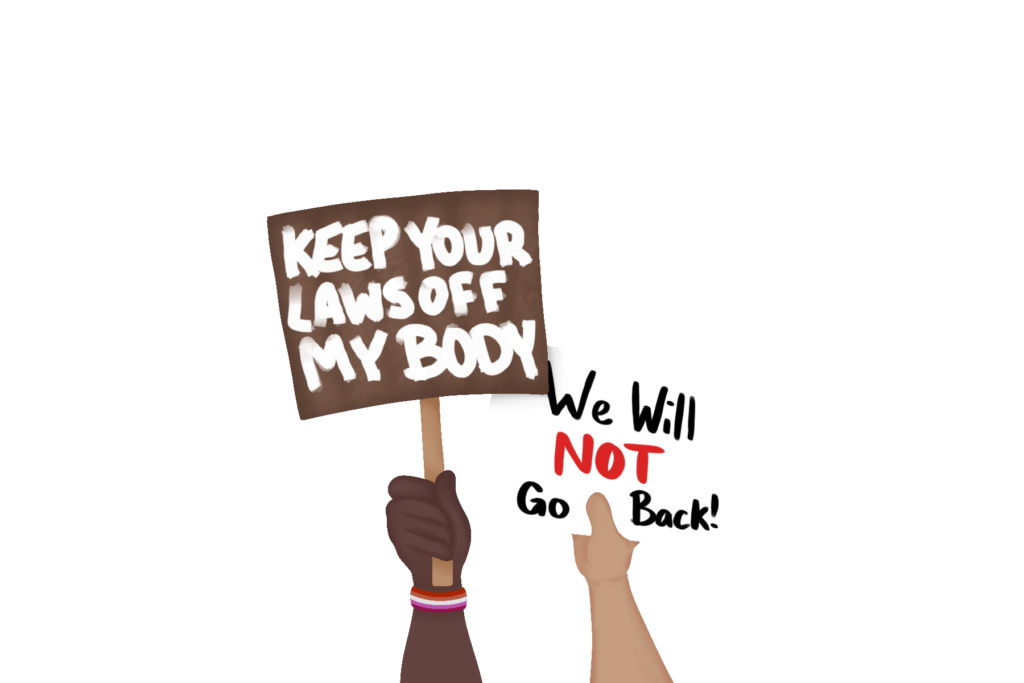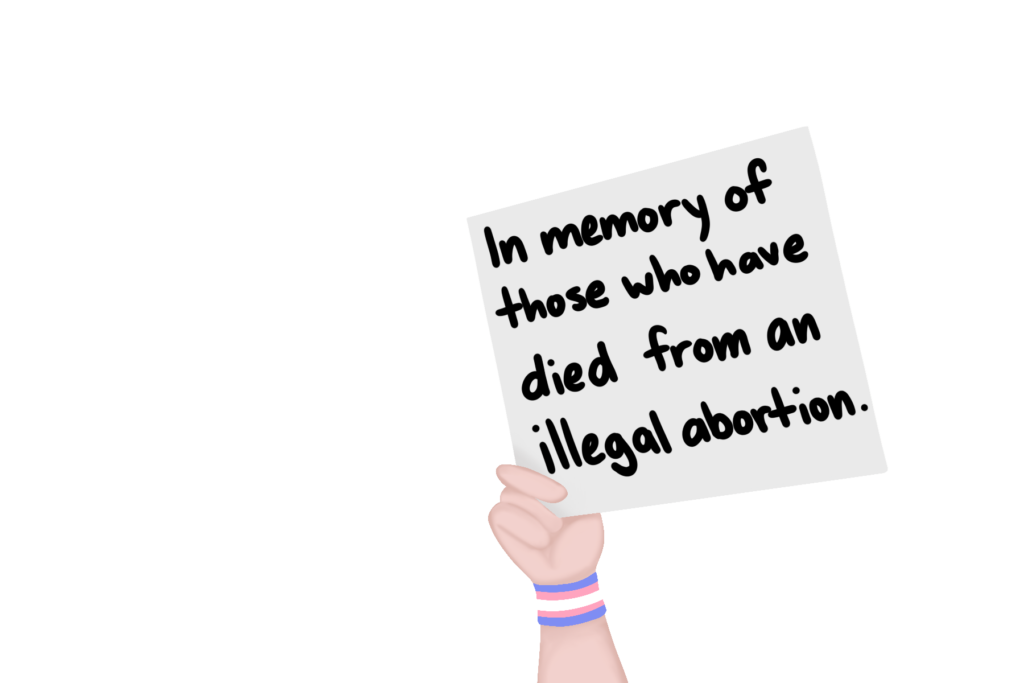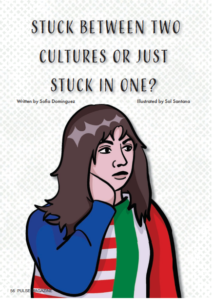The microscopical vision of the overturning of Roe v. Wade
Students, families and people in all 50 states have been worried about the U.S. Supreme Court’s recent overturning of Roe v. Wade.
The overturning caused several protests around every part of the United States, including the Rio Grande Valley. But, a considerable number of individuals are wondering (and even more if you are not into politics):

What the duck is Roe v. Wade?!
According to Thirteen, Roe v. Wade was a legal case in which Linda Coffee and Sarah Weddington sued District Attorney Henry Wade on behalf of Jane Roe, who was trying to get an abortion. She could not get the medical care she needed because her life was not in danger.
Roe won the case after Justice Harry Blackmun ruled that Texas statutes violated her constitutional rights under the First, Fourth, Ninth, and Fourteenth Amendments, which granted her the right to privacy and provided her control over whether or not to seek medical care.
The court’s controversial ruling signaled the beginning of abortion’s decriminalization. Before this, some people with uteruses perished from ectopic pregnancies, elevated risks, and abnormal pregnancies. The number of people with uteruses rescued from abortion increased. The decision lets sexual assault victims decide whether to keep pregnancies from the assault to prevent further trauma.
However, some people believed the decision violated their religious beliefs and protested against the law for years.
Here comes the consequences, consequences, consequences.

On June 24, 2022, 50 years after Roe v. Wade, the U.S. Supreme Court reversed the decision on a 6-2 vote. While the decision was a victory for some, it was a loss for others. But what are the actual consequences of overturning Roe v. Wade?
- Losing privacy – In the initial decision, privacy was violated (As indicated by the Fourth, Ninth, and Fourteenth amendments) by the laws of Texas.
People worried that governments might use this information to prosecute and arrest period tracker owners if accused of performing an abortion in a restricted abortion state as a result of a vast period tracker data leak.
Everyone can use the interactive map of the Guttmatcher Institute to see the most restrictive to the most protective states in what it comes to abortion laws.
Recommend reading: Supreme Court overturns Roe v. Wade, ending the right to abortion upheld for decades
- Upcoming trigger laws in the states – With the overturning of Roe v. Wade, abortion trigger laws are in effect nationwide. Citizens cannot accept Trigger Laws until they undergo a substantial change that makes them acceptable. Texas started with just a few of them at the moment of the overturning of Roe v. Wade. Still, Florida, Georgia, Maryland, and several states began with many related laws.
In a case against Florida, a teenager, Jane Doe, asked for her right to abort before15weeks (the state’s abortion range).
The appellate court responded that Doe was “not mature enough to decide an abortion,” according to The Washington Post.
Recommend reading: Faith-based groups sue to overturn Florida’s 15-week abortion ban
- Overturning more “unconstitutional decisions” – Legal cases like Obergefell v. Hodges (which gave same-sex couples the right to marry), and Griswold v. Connecticut (which gave people the right to buy and use contraceptives), are also at risk of being overturned.
A comment made by Justice Clarence Thomas suggested the consideration of changing these decisions: “In future cases, we should reconsider all of this Court’s substantive due process precedents, including Griswold, Lawrence, and Obergefell” after the 78-pages opinion of Justice Samuel Alito came to light.
These actions can cause damage to people’s lives, especially minorities like LGBTQ+ people and people of color, as followed up by NBC and NPR.
For more information: For many trans pregnant people, competent medical care is hard to find
- Risk for Medical Caregivers – There are now multiple reasons why medical doctors can refuse to provide abortion medical attention to people, for example, the risk of losing their medical license if they get reported about providing abortions in a restrictive state. One of them is attacks from anti-abortion groups. Even in Roe v. Wade era, according to the Organization of American Historians (OAH), extremist opponents of abortion attacked abortion providers. There were 153 assaults, 383 death threats, three kidnappings, 18 attempted murders, and nine murders of medical caregivers between the early 1980s and 2000s.
Anti-abortion groups have not stopped their attacks. In 2021 as stated by the Department of Justice of the United States, there were two violent attacks related to molotovs. Fores stated that according to a 2018 National Library of Medicine report, 123 cases, including violence, assault, and vandalism, along with 71 suspicious shipments and hoax devices, were recorded in 2021.
Recommend reading: Federal Judge blocks enforcement of Biden Administration abortion rule in Texas
- Overflowing false crisis pregnancy centers – Crisis Pregnancy Centers (CPC) are huge in Texas and all over the 50 states. CPCs purport to be abortion-providing facilities and often claim to provide information about abortion treatment, methods, and more.
According to NBC, when someone tries to get an abortion or some information related to the procedures, CPCs tend to mislead and misinform them to make them feel scared or believe they have support if they keep the fetus.
For more information: Why Crisis Pregnancy Centers are Legal but Unethical

Now What?
Roe v. Wade has ended, and several people in the media can agree that the overturning was a mistake, leading the decisions of the states to have worse consequences than we thought. Cases like Jennifer Lane’s and Stell’s (Creator content of the platform Youtube) marked a before and after in the past months.
Not everything is gray for everyone. By having anti-abortion groups celebrate the decision taken by the U.S Supreme Court. “We worked so hard, and I know that others before me worked harder, and so for the other generation of pro-lifers to see this today, I’m so grateful today for them and their perseverance, and I am glad that I can be on the second kind of generation that can push this in the 50 states now,” stated anti-abortion protestor Leary Kelly in a short interview with The New York Times.
Roe v. Wade is just one of the many decisions the U.S. Supreme Court must review in the following years. People, however, are divided on what should happen next. Emotions are at the top of the mountain, leading to take action, pro-life and pro-choice.









